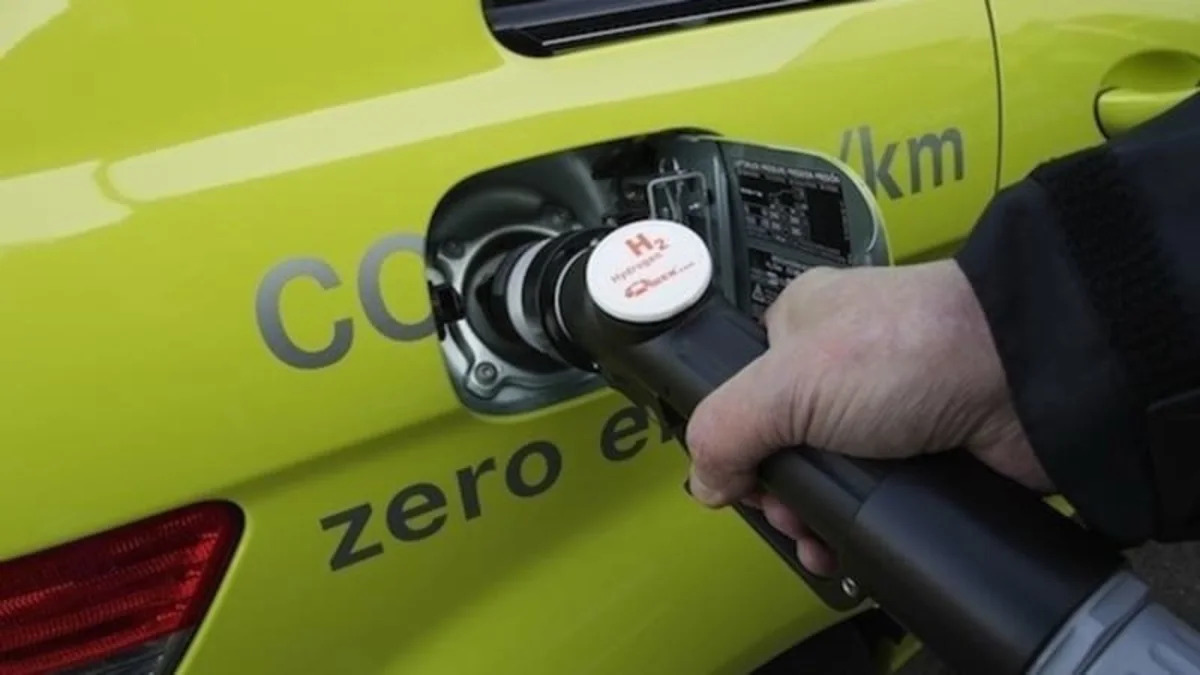There is death. There are taxes. And there is the US Department of Energy (DOE) periodically funding millions of dollars worth of grants towards advancing hydrogen fuel-cell technology. This time, the DOE says it will write checks for $20 million, and the goal is pretty specific: bringing the production and distribution costs of hydrogen to less than the equivalent of $4 a gallon.
The largest of these most recent grants went to the University of Hawaii in Honolulu, HI, which is getting $3 million to develop photoelectrodes for direct solar water splitting. Ponder that concept for a moment. Sandia National Laboratories of Livermore, CA, and University of Colorado, Boulder, will each receive about $2 million for products related to using solar energy to help produce hydrogen. And Tennessee's Oak Ridge National Laboratory and Virginia's Wiretough Cylinders LLC will each get $2 million to develop technology related to hydrogen storage.
The DOE continues to periodically roll out funding to advance hydrogen fuel-cell technology as a viable transportation option for light- and medium-duty vehicles. Last August, the DOE agreed to fund $4.5 million for two projects focused on advanced fuel cell membranes. Last June, the DOE released $9 million worth of grants for advancing fuel-cell technology for medium-duty vehicles. Check out the DOE's most recent press release below.
The largest of these most recent grants went to the University of Hawaii in Honolulu, HI, which is getting $3 million to develop photoelectrodes for direct solar water splitting. Ponder that concept for a moment. Sandia National Laboratories of Livermore, CA, and University of Colorado, Boulder, will each receive about $2 million for products related to using solar energy to help produce hydrogen. And Tennessee's Oak Ridge National Laboratory and Virginia's Wiretough Cylinders LLC will each get $2 million to develop technology related to hydrogen storage.
The DOE continues to periodically roll out funding to advance hydrogen fuel-cell technology as a viable transportation option for light- and medium-duty vehicles. Last August, the DOE agreed to fund $4.5 million for two projects focused on advanced fuel cell membranes. Last June, the DOE released $9 million worth of grants for advancing fuel-cell technology for medium-duty vehicles. Check out the DOE's most recent press release below.
Energy Department Invests $20 Million to Advance Hydrogen Production and Delivery Technologies
The Energy Department today announced $20 million for ten new research and development projects that will advance hydrogen production and delivery technologies. Developing technologies that can economically produce and deliver hydrogen to power fuel cells from diverse, domestic, and renewable resources can enable substantial reductions in energy use and carbon emissions. Advancing these technologies will be critical to the widespread commercialization of fuel cell electric vehicles and other fuel cell technologies.
The six hydrogen production R&D projects selected today aim to produce, deliver, and dispense hydrogen at less than $4 per gallon gasoline equivalent:
The Energy Department today announced $20 million for ten new research and development projects that will advance hydrogen production and delivery technologies. Developing technologies that can economically produce and deliver hydrogen to power fuel cells from diverse, domestic, and renewable resources can enable substantial reductions in energy use and carbon emissions. Advancing these technologies will be critical to the widespread commercialization of fuel cell electric vehicles and other fuel cell technologies.
The six hydrogen production R&D projects selected today aim to produce, deliver, and dispense hydrogen at less than $4 per gallon gasoline equivalent:
- FuelCell Energy Inc. of Danbury, Connecticut will receive $900,000 to develop a novel hybrid system for low-cost, low greenhouse gas hydrogen production.
- Pacific Northwest National Laboratory of Richland, Washington will receive $2.2 million to develop a reactor for hydrogen production from bio-derived liquids.
- National Renewable Energy Laboratory of Golden, Colorado will receive $3 million to develop high-efficiency tandem absorbers based on novel semiconductor materials that can produce hydrogen from water using solar energy.
- University of Hawaii of Honolulu, Hawaii will receive $3 million to develop photoelectrodes for direct solar water splitting.
- Sandia National Laboratories of Livermore, California will receive $2.2 million to develop an innovative high-efficiency solar thermochemical reactor for solar hydrogen production.
- University of Colorado, Boulder of Boulder, Colorado will receive $2 million to develop a novel solar-thermal reactor to split water with concentrated sunlight.
The four hydrogen delivery R&D projects aim to reach the hydrogen cost goal of less than $4 per gallon by addressing the cost of compression, storage, and dispensing at the station:
- Southwest Research Institute of San Antonio, Texas will receive $1.8 million to demonstrate a hydrogen compression system.
- Nuvera Fuel Cells Inc. of Billerica, Massachusetts will receive $1.5 million to design and demonstrate an integrated, intelligent high pressure hydrogen dispenser for fuel cell electric vehicle fueling.
- Oak Ridge National Laboratory of Oak Ridge, Tennessee will receive $2 million to demonstrate a low cost, steel concrete composite vessel for high pressure hydrogen storage.
- Wiretough Cylinders LLC of Bristol, Virginia will receive $2 million to demonstrate a low cost high pressure hydrogen storage vessel using a steel wire overwrap.
Find additional information on the Energy Department's broader efforts to develop affordable, efficient fuel cell and hydrogen technologies on EERE's Hydrogen and Fuel Cells page.


Sign in to post
Please sign in to leave a comment.
Continue